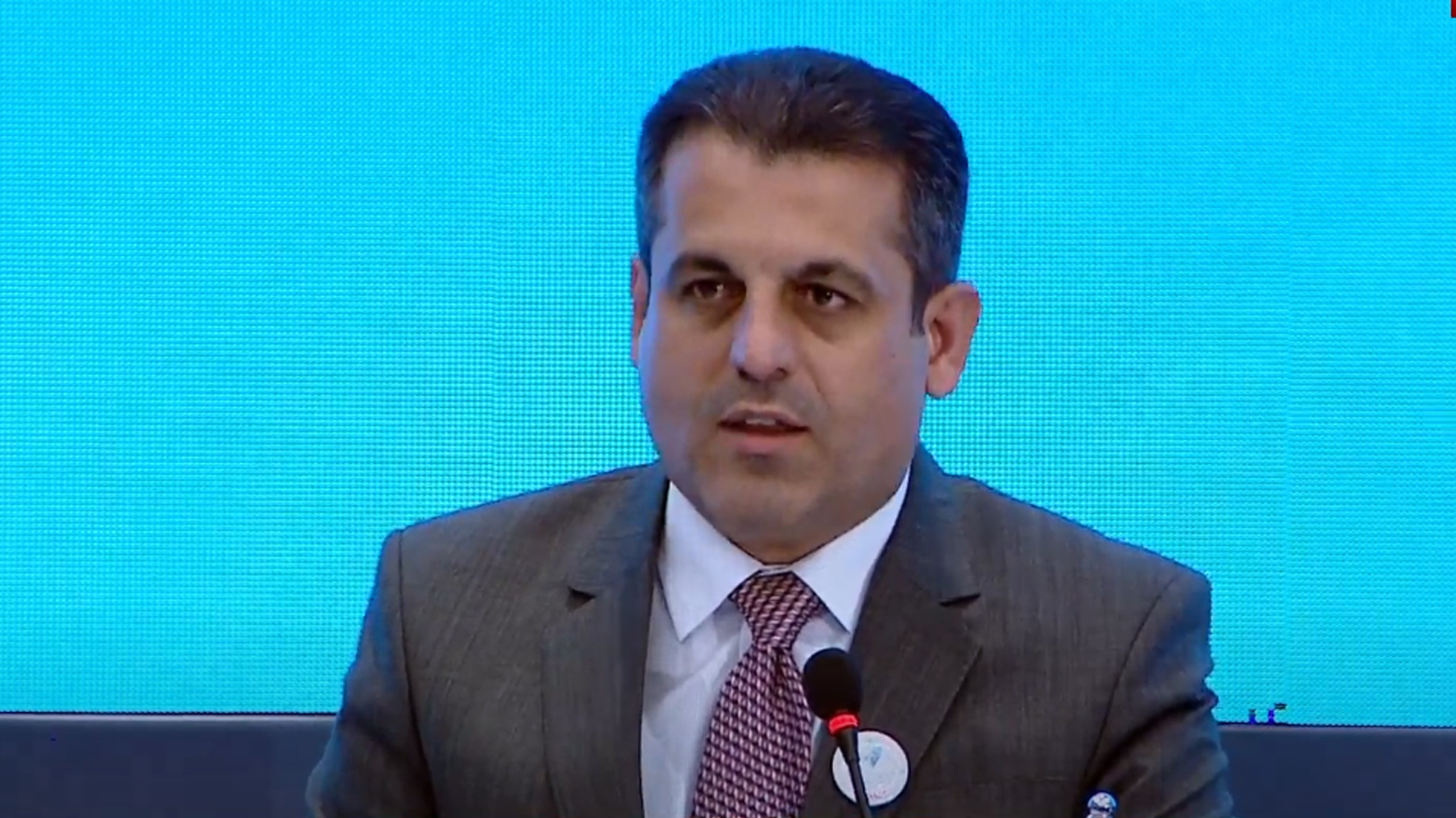Kurdistan Health Minister Calls for Legal Amendments to Strengthen Anti-Narcotics Response
The Health Minister explained that his ministry, as part of the High Committee for Drug Prevention, convenes monthly with other relevant KRG institutions to assess policy implementation and oversee sectoral coordination.

By Ahora Qadi
ERBIL (Kurdistan24) – Kurdistan Region’s Health Minister Dr. Saman Barzinji on Thursday urged a comprehensive legal review of the Region’s narcotics response framework, emphasizing that several provisions of the 2020 anti-drug law may no longer meet the urgent demands of the current situation.
Speaking at the formal launch of the campaign, under the slogan “Together Toward a Strong and Healthy Society—held under the auspices of Kurdistan Region Prime Minister Masrour Barzani—Barzinji said the Ninth Cabinet of the Kurdistan Regional Government (KRG) had introduced for the first time a dedicated narcotics law, Law No. 1 of 2020, encompassing 10 distinct legal provisions on combating drug abuse.
“Given the evolving nature of the threat, it is necessary to revise and update some of these legal provisions,” Barzinji stated.
A Multidimensional Strategy
The Health Minister explained that his ministry, as part of the High Committee for Drug Prevention, convenes monthly with other relevant KRG institutions to assess policy implementation and oversee sectoral coordination.
Barzinji noted that in 2023, Directive No. 10 was issued to guide the enforcement of the 2020 law. The national anti-drug strategy, he said, is built upon four key pillars:
- Legal and judicial enforcement
- Treatment and rehabilitation
- Prevention and deterrence
- Public awareness
He emphasized that the legal and judicial arms of the state are engaged daily with drug-related cases, while public health and security sectors collaborate to address both the clinical and social dimensions of addiction.
Sobering Statistics
Citing figures from the Kurdistan Region Security Directorate, Barzinji revealed that in just the first four months of 2025, 388 individuals were arrested on narcotics-related charges. Of these, 173 were users, 143 were involved in local distribution, and 72 were linked to transnational trafficking networks.
He added that nearly 1,000 arrests were made in 2024, reflecting the magnitude of the challenge.
Kurdistan’s Strategic Exposure
Barzinji also warned that Kurdistan’s geographic location, nestled between major drug-producing and transit countries, has made it a frontline region in the fight against narcotics.
“The Region has unfortunately become a corridor for trafficking routes due to its location between drug-producing nations and consumer markets,” he noted.
Reinforcing Legal Infrastructure
Concluding his remarks, the Minister stressed that while the KRG has taken decisive steps through legislation and inter-agency coordination, additional reforms and regional cooperation with Iraq’s federal government and international partners remain essential.
“This crisis requires more than enforcement—it demands strategic alignment, continuous reform, and community engagement to safeguard society from this silent threat,” Barzinji said.
The call for legal reform comes as KRG intensifies its campaign to raise awareness, tighten border control, and expand access to rehabilitation, reaffirming its commitment to a resilient, healthy society grounded in rule of law and public responsibility.